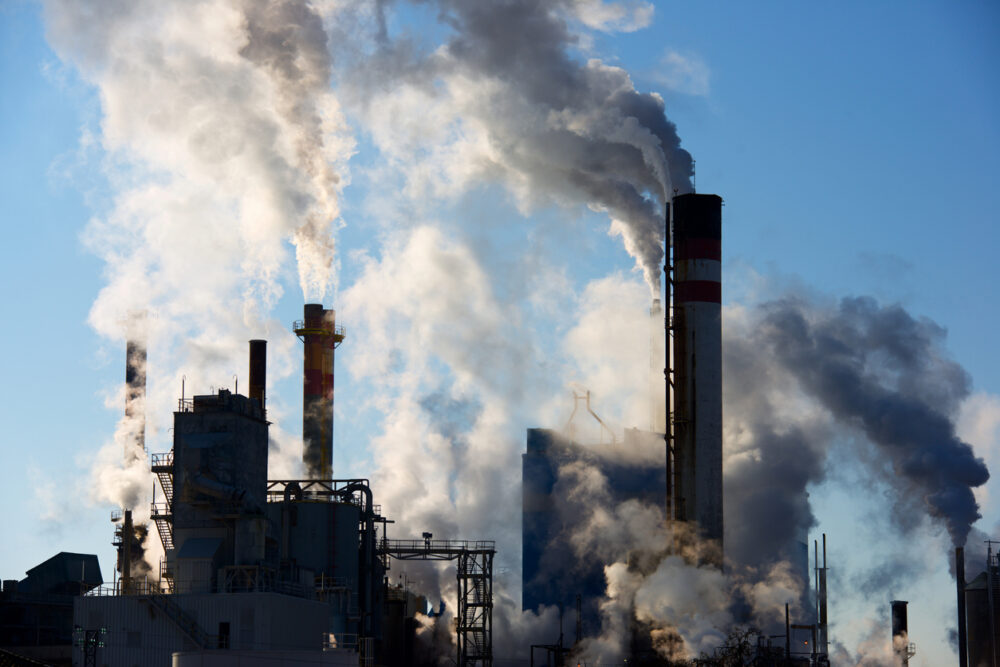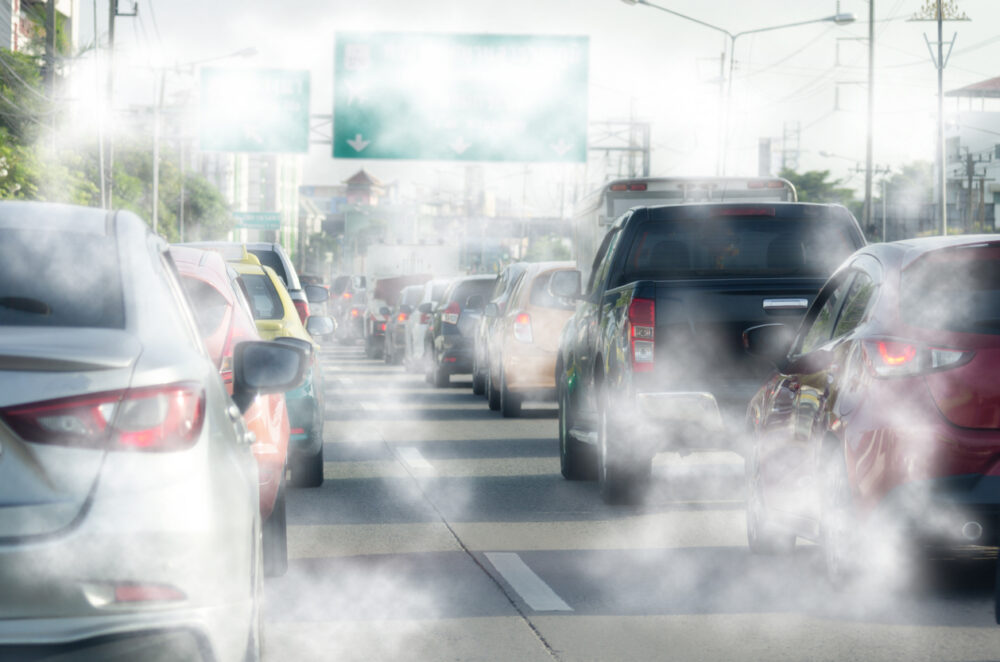Your daily brain fog might not be burnout—it could be the air around you.

Most people think of air pollution as a respiratory issue. We picture smoggy skylines, asthma attacks, or city-wide alerts warning us to stay indoors. But the damage doesn’t stop with the lungs. A growing body of research shows that air pollution is just as harmful to the brain as it is to the body. It affects how people think, how they process emotions, and even how well they remember basic information.
This is no longer just an urban problem. The chemicals and particles found in polluted air are quietly interfering with cognitive health across the globe, including in areas previously considered low risk. And while many are aware of the physical symptoms, far fewer recognize what’s happening neurologically. Brain fog, forgetfulness, mood swings, and slowed thinking are on the rise. The air people breathe every day may be one of the most underestimated threats to mental clarity.
1. Breathing polluted air messes with your brain in ways you can’t feel.

Ultrafine particles in polluted air are small enough to slip through the body’s defenses and go straight to the brain. Once they’re in, they cause inflammation and interfere with how brain cells work—without setting off any obvious warning signs. These particles come from things like exhaust fumes, factory smoke, and wildfire ash. They can pass through the blood-brain barrier, which is supposed to protect against toxins. Inside the brain, they disrupt neuron activity and damage areas tied to memory and decision-making.
BBC News science editor David Shukman reported that researchers discovered tiny pollution-derived particles lodged deep within samples of human brain tissue. Most people never feel the shift as it’s happening. But over time, the damage adds up, especially in places with heavy pollution. That foggy-headed feeling? It might not be a fluke—it could be from the air.
2. That brain fog might not be burnout—it might be bad air.

When focus slips or memory feels fuzzy, the first guess is usually stress, lack of sleep, or burnout. But poor air quality may be doing just as much damage, especially in cities or high-traffic areas.
Olivia Lee reported in The Guardian that exposure to particulate air pollution significantly impairs focus and cognitive performance. It’s not dramatic memory loss—it’s slower recall, trouble tracking conversations, or losing a train of thought mid-sentence.
These moments don’t always feel serious, but they’re happening more often in polluted environments. And while burnout definitely plays a role, researchers are finding that people breathing more polluted air tend to struggle more with basic cognitive tasks. If rest and recovery aren’t helping, the problem might not be internal—it might be what’s in the air.
3. Air pollution rewires kids’ brains before they can fight back.

Children don’t just breathe more rapidly than adults—they also absorb more of what’s in the air. And when that air is filled with pollutants, it can reshape how their brains grow and function, long before the damage is obvious. According to a study by the National Institutes of Health, young children living near major roadways have double the risk of experiencing delays in communication skills compared to those living farther away. It’s not always linked to genetics or parenting. Sometimes, it’s just the zip code.
These effects can stick around for years, even into adulthood. And because kids can’t choose where they live or control their exposure, they’re stuck breathing in toxins during the most critical stages of development. For some, that means struggling in school not because they’re behind—but because their brain never got the chance to build the right foundation.
4. Living in a city could be draining your brain—slowly.

City life comes with plenty of perks, but clean air usually isn’t one of them. Constant exposure to traffic fumes, construction dust, and crowded buildings means the brain is working overtime just to stay sharp.
Even at levels considered “safe,” urban air has been linked to slower processing speed, shorter attention spans, and more mental fatigue. It’s subtle at first. Tasks take a little longer. Concentration gets harder.
The brain starts to feel foggy without a clear reason why. Many people chalk it up to being busy or overworked, but air quality is part of the equation too. The impact might not hit all at once—but for millions of city dwellers, the slow drain on cognitive function is very real.
5. Polluted air fuels anxiety, mood swings, and brain fog.

Air pollution doesn’t just mess with memory. It also affects how people feel emotionally. Studies have linked exposure to fine particulate matter with increased anxiety, irritability, and symptoms of depression, even in areas with moderate pollution levels.
The science points to inflammation and changes in neurotransmitter activity. In simple terms, breathing in polluted air affects how the brain regulates mood. Teenagers and older adults seem to be especially sensitive, but these shifts show up across all age groups. It’s not always a full-on depressive episode. Sometimes it just feels like short tempers, foggy thinking, or an overall sense of being off. The connection to air quality is easy to miss, especially since it doesn’t come with a cough or wheeze. But emotional stability takes a hit when the brain is constantly reacting to toxic particles in the background.
6. Even short exposure can slow your brain down.

Cognitive changes don’t only show up after years of breathing bad air. Research suggests that even short-term exposure—just a few hours or days—can temporarily impact mental clarity.
In one study, participants exposed to increased pollution had slower response times and lower attention scores within days. This matters for anyone living near major roads, commuting through smoggy cities, or even opening windows near construction zones. It doesn’t take decades to feel the effects. Even a high-pollution week can throw off focus, productivity, and decision-making. These temporary dips often go unnoticed or get blamed on poor sleep or stress. But when they happen often enough, they start to chip away at overall brain function. And for people in consistently polluted areas, those “temporary” effects can turn into a baseline.
7. Cognitive decline starts younger than most people think.

Alzheimer’s and dementia are often seen as problems of old age, but the groundwork for cognitive decline may start decades earlier. Some studies have found that exposure to air pollution in midlife, even in small amounts, can speed up brain aging. In brain scans, people exposed to more polluted environments show more signs of shrinkage in areas responsible for memory and learning. These aren’t just outliers or high-risk groups.
They’re average adults living in cities or suburbs with steady but unremarkable pollution levels. The damage doesn’t feel obvious at first. It shows up as slower thinking, less recall, or difficulty switching between tasks. But over time, the risk compounds. Waiting until symptoms show up in old age may be too late to reverse the harm that began much earlier.
8. Indoor air traps toxins that damage focus and memory.

Most people assume being inside means they’re safe from air pollution. But indoor air can be just as harmful, especially in sealed buildings that recycle dirty air or use cheap ventilation systems.
Common culprits include cooking fumes, cleaning chemicals, mold spores, and even off-gassing from furniture or carpets. In office spaces, the mix often includes printer emissions and industrial cleaners. These pollutants collect in enclosed environments and linger, especially in places with poor airflow. People spending hours in these spaces often report headaches, brain fog, and trouble focusing. Without good filtration or ventilation, the brain ends up under constant low-grade stress. Clean indoor air isn’t just about comfort. It’s essential for mental clarity.
9. Long commutes silently eat away at your brain.

Spending hours in traffic might seem like just an inconvenience, but those daily drives come with serious cognitive side effects. Sitting in gridlock means breathing in concentrated exhaust fumes, often with windows closed and air recirculating inside the car.
Studies have shown that regular exposure to high vehicle emissions can lead to slower cognitive function over time. The problem isn’t just about stress or lost time. It’s about the steady flow of microscopic particles that build up in the body and brain with every trip.
Many commuters don’t realize how much dirty air they’re breathing while stuck behind other cars, especially in older vehicles or busy corridors. This kind of exposure doesn’t cause symptoms right away. But years of daily traffic can leave people foggy, forgetful, and mentally drained before the workday even begins.
10. Clean-looking suburbs still carry hidden brain risks.

Just because a neighborhood looks clean and green doesn’t mean the air is safe. Suburban areas often sit near highways, industrial zones, or farmland that uses heavy chemicals. These pollutants linger in the air even if they aren’t visible.
People tend to assume rural or suburban air is healthier, but local wind patterns and invisible particulates still reach the lungs and the brain. Suburbs with heavy lawn care use or pesticide drift can expose residents to neurotoxic chemicals, even inside their homes. Add in wood-burning fireplaces, gas-powered tools, or nearby traffic, and it becomes clear that clean skies don’t always mean clean air. The danger here is in the false sense of safety. People don’t take precautions because they don’t see the threat. But long-term exposure in these overlooked zones may be just as harmful as in major cities.
11. Breathing better air helps your brain bounce back.

The damage from pollution isn’t always permanent. In areas where air quality improves, studies have found that brain health improves too. People report better focus, clearer memory, and fewer emotional disruptions after moving to or spending time in cleaner environments.
Cleaner air reduces inflammation in the brain and restores more balanced neurotransmitter activity. Some schools and homes that added proper filtration systems saw improved attention spans and academic performance in children. Even small steps like using indoor air purifiers, avoiding high-traffic routes, or spending more time in nature can make a measurable difference. The brain is resilient. It just needs the right conditions to function the way it’s supposed to.